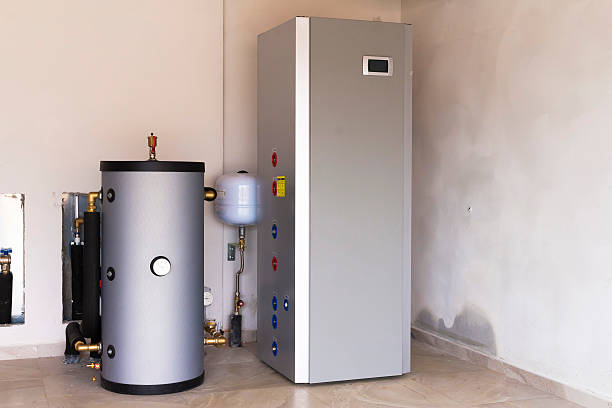Choosing the right heat pump for your home is crucial for maintaining comfort and energy efficiency. With various options available in the market, it can be overwhelming to make the right decision. However, by considering factors such as size, efficiency, type, and climate compatibility, you can find the perfect heat pump that suits your needs. In this comprehensive guide, we'll walk you through the essential steps to help you choose the right heat pump for your home.
Understanding Heat Pumps
Before delving into the selection process, it's essential to understand how heat pumps work. A heat pump is a device that transfers heat from one place to another using electricity. It can both heat and cool your home by extracting heat from the air or ground outside and transferring it indoors (for heating) or vice versa (for cooling). This makes heat pumps an energy-efficient alternative to traditional heating and cooling systems like furnaces and air conditioners. If you reside in Des Moines, IA, ensuring regular heat pump service in Des Moines, IA, is crucial to maintaining optimal performance and efficiency.
Factors to Consider When Choosing a Heat Pump
Size
- The size of the heat pump is critical for its efficiency and effectiveness in heating or cooling your home. A unit that is too small will struggle to meet the heating or cooling demands of your space, while an oversized unit may cycle on and off frequently, leading to energy wastage and inconsistent comfort.
- To determine the right size, you'll need to consider factors such as the square footage of your home, insulation levels, ceiling height, number of windows, and climate. Consulting with a professional HVAC contractor can help you accurately calculate the size requirements for your home.
Efficiency
- Energy efficiency is another crucial factor to consider when choosing a heat pump. Look for units with high Seasonal Energy Efficiency Ratio (SEER) and Heating Seasonal Performance Factor (HSPF) ratings.
- The SEER rating indicates the cooling efficiency of the heat pump, while the HSPF rating measures its heating efficiency. Aim for a SEER rating of at least 14 and an HSPF rating of 8.2 or higher for optimal energy savings.
- Additionally, consider investing in a heat pump with variable-speed or two-stage compressors, which can adjust their output to match the heating or cooling needs of your home more efficiently.
Type of Heat Pump
- There are three main types of heat pumps: air-source, ground-source (geothermal), and ductless mini-split.
- Air-source heat pumps are the most common type and extract heat from the outdoor air. They are suitable for moderate climates but may lose efficiency in extreme cold temperatures.
- Ground-source heat pumps, also known as geothermal heat pumps, extract heat from the ground or a body of water. They are highly efficient but require a significant upfront investment for installation.
- Ductless mini-split heat pumps consist of indoor air-handling units and outdoor condensers connected by refrigerant lines. They are ideal for homes without ductwork or for heating and cooling specific zones within a home. When you need a professional for your heat pump maintenance, it's essential to hire experienced technicians who specialize in servicing ductless mini-split systems to ensure proper installation, maintenance, and repairs.
Climate Compatibility
- Consider your local climate when choosing a heat pump. Air-source heat pumps may struggle to provide sufficient heating in extremely cold climates, while ground-source heat pumps are more suitable for areas with consistent temperatures year-round.
- Look for heat pumps with a high Heating Seasonal Performance Factor (HSPF) rating, as they are better equipped to handle colder climates and maintain efficiency even in low temperatures. Understanding some common heating problems can also help you choose a heat pump with features that address these issues effectively.
Budget and Cost
- Determine your budget for purchasing and installing a heat pump, taking into account upfront costs as well as long-term energy savings.
- While air-source heat pumps are generally more affordable upfront, ground-source heat pumps offer greater long-term savings due to their higher efficiency and lower operating costs.
- Consider available incentives, rebates, and financing options that may help offset the initial cost of installing a heat pump.
Noise Level
- Pay attention to the noise level of the heat pump, especially if it will be installed near living spaces or bedrooms. Look for units with sound-dampening features or low-decibel ratings for quieter operation.
Conclusion
Choosing the right heat pump for your home involves careful consideration of factors such as size, efficiency, type, climate compatibility, budget, and noise level. By assessing your specific heating and cooling needs and consulting with a qualified HVAC professional, you can select a heat pump that not only provides optimal comfort but also maximizes energy savings and reduces environmental impact. Investing in the right heat pump is an important step toward creating a comfortable and efficient home environment for years to come.





Comments